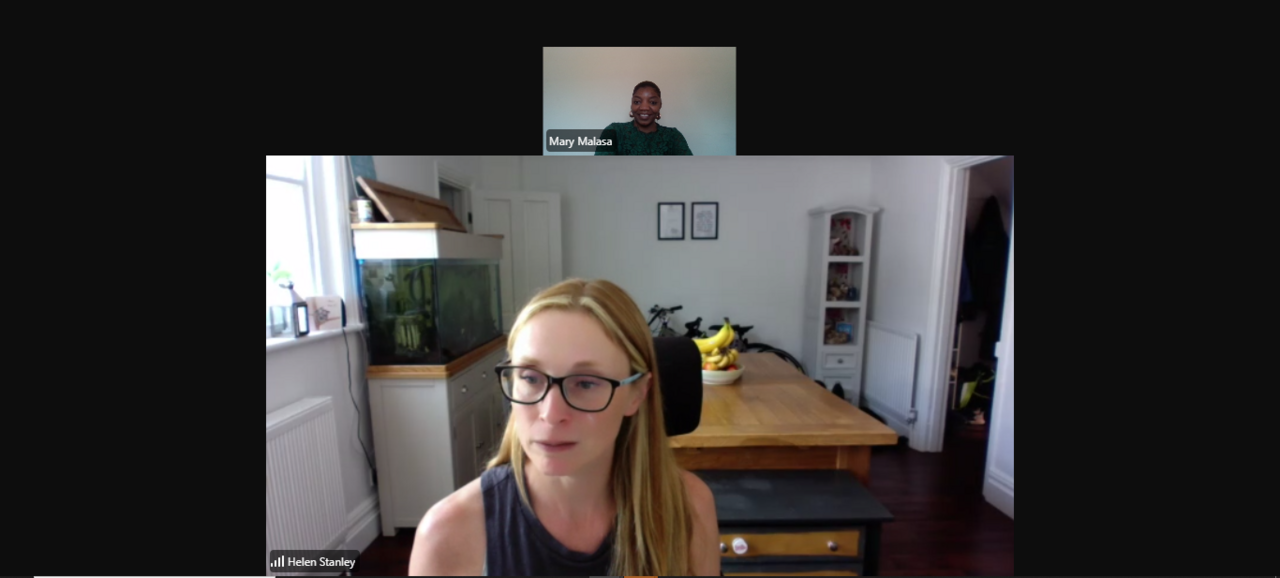Lessons Learned from Nearly Two Decades of Grant Writing Experience

Interview with Helen Stanley
Conducted by Mary Malasa
Helen Stanley, a seasoned grant writer with 20 years of experience, shared her insights from working across sectors such as health, education, conservation, and habitat protection. Having collaborated with various donors, including government agencies like USAID, foundations like the Darwin Initiative, and private individuals, Helen provided valuable lessons on grant writing that can benefit conservation professionals.
What do you consider the most important aspects of identifying grant opportunities?
The first step in securing funding is identifying the right grant opportunities. Platforms like "Funds for NGOs" and "BOND" allow organizations to search for funding by region or project type, saving time and effort in curating opportunities that match their mission.
"Subscribe to the right platforms and do your homework on potential donors."
Helen recommended researching other nonprofits doing similar work to find out who funds them, as annual reports and online listings often provide valuable leads. Exploring databases and books such as The Directory of Social Change’s (UK) Guide to Grant-Making Trusts can further expand the pool of potential funders.
What makes a grant proposal compelling?
A successful proposal begins with thorough preparation.
Preparation is key—make sure your project is fully developed before writing."
Having a well-developed project, including a solid budget, clearly defined outcomes, and an understanding of how the project will be managed, is crucial. It’s also important to ensure that your project aligns with the funder’s eligibility criteria to avoid wasting time. In the proposal itself, it’s essential to introduce your organization, explain your project’s goals, and provide evidence of the need for your work. Clarity and passion matter- make it clear who you are, what you do, and why it matters. Connecting your work to larger frameworks such as the Sustainable Development Goals (SDGs) can further strengthen your proposal.
Insights on tailoring proposals to specific funders
No two funders are alike, and it’s essential to tailor each proposal specifically to the funder’s goals.
Every funder is different, so tailor each proposal accordingly."
Show funders you’ve done your homework. Personalizing your proposals by using phrases such as, "We understand you are passionate about..." demonstrates that your project aligns with their priorities. This approach makes your application stand out, as funders appreciate when applicants have researched their objectives.
Common pitfalls to avoid
Many proposals fail simply because applicants overlook eligibility criteria or rush through the process. It’s important to double-check details, involve your project team in drafting the proposal, and proofread thoroughly to avoid common mistakes like incomplete applications.
Read eligibility criteria carefully and don’t rush the process."
How do you handle rejection?
Rejections happen, but stay organized and keep moving forward. Grant writing is both a science and an art—persistence is key. Even the best proposals may face rejection.
Rejections happen, but stay organized and keep moving forward—persistence is key."
Staying organized by maintaining a detailed pipeline of funders, deadlines, and requirements, can help streamline the process and keep the momentum going.
Helen describes grant writing as both a science and an art. Her experience underscores that with persistence, attention to detail, and continual refinement, success in grant writing is achievable over time. These insights from Helen Stanley highlight the importance of strategic preparation, personalized proposals, and resilience. Conservation professionals can use these lessons to improve their grant writing and secure essential funding for their work.

Please sign in or register for FREE
If you are a registered user on WildHub, please sign in
Wonderful and very useful insight piece! Thanks so much for sharing your insights Helen Stanley and for this excellent interview @Mary Malasa !
Thank you so much Thirza!
Thanks so much Mary and Helen. Our Grant Writing course is starting this week, so I'll definitely be sharing this article with the new trainees! It has loads of useful tips.
Thank you Liane! It will be an honor. I have enrolled for the grant writing session, I look forward to learning more about granting writing through the training.
Thanks. I really appreciate these insights as it galvanizes me to keep moving forward—''persistence is key'' I love this
Thank you Amu! Glad to hear you found this insightful!